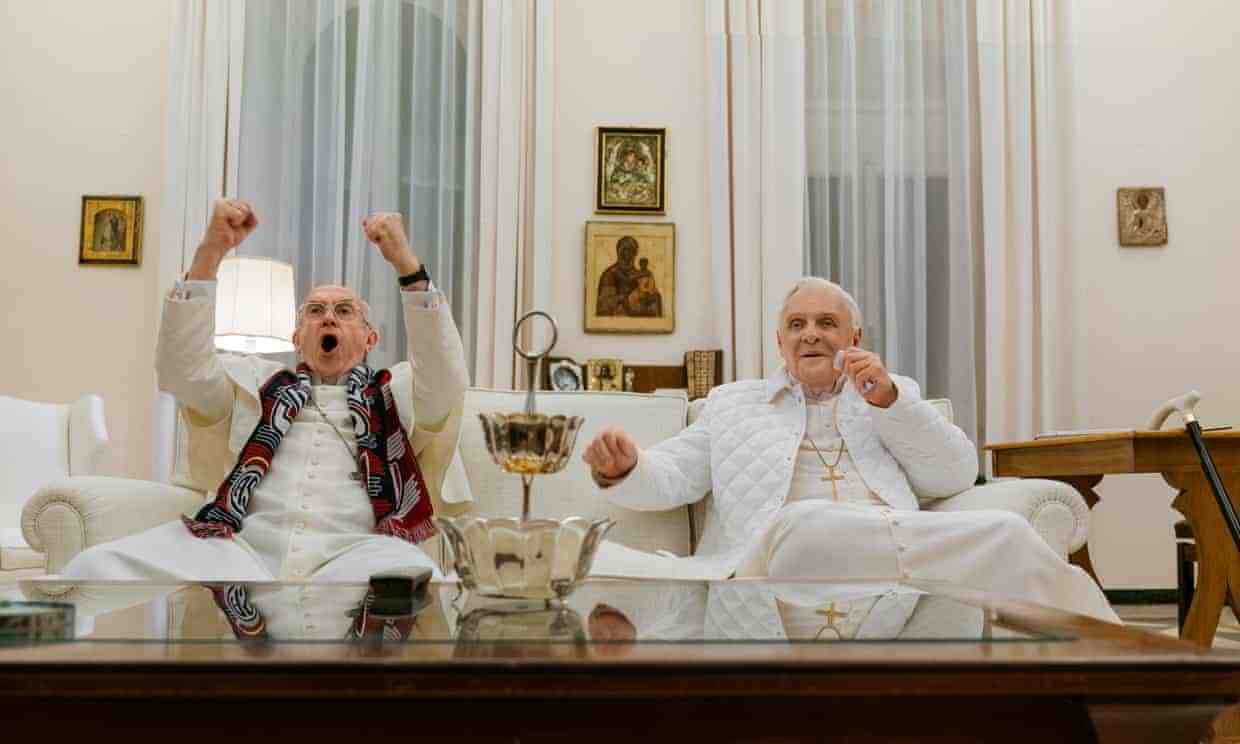
Brazillian director Fernando Meirelles has a very interesting body of work. With intense crime thriller City of God (which he co-directed with Katia Lund) as his calling card, Meirelles has always been a filmmaker that aimed for realism and verisimilitude (see: political thriller The Constant Gardener) even if the premise had veered more into a fantastical way (such as dystopian sci-fi Blindness).
His later films – including 360, a multi-strand drama – had achieved mixed reception from both audiences and critics, so he went back to Brazil and made many films on both film and television — including HBO’s Joint Venture and the spin-off series of City of God called City of Men.
In 2019, he returns with Netflix film, The Two Popes, a biographical comedy/drama that looks like nothing Meirelles has made before. With talented leads playing two men with vastly different interpretations of the same religion, backed by an engaging story covering organised religion in today’s society, it all looks very promising. Let us pray.
Inspired by true events, Jonathan Pryce stars as Cardinal Bergolio (aka Pope Francis), a well-respected man in his home city of Buenos Aires, Argentina, who believes in good morals over tradition. He is frustrated by the current direction of the Vatican to the point that he requests permission to retire from newly assigned Pope Benedict XVI (Anthony Hopkins).
But when Benedict calls in Bergoglio, he instead asks the cardinal to be his successor, leading them into a passionate discussion over tradition and progress, and guilt and forgiveness. These two very different men find themselves confronting their pasts, in order to find enough common ground that they can together forge a future for a billion followers around the world.
The Two Popes is a story easily imaginable as a two-man play. But Meirelles, who pumps the story with plenty of stylistic flourishes – from handheld camera shots and changes in aspect ratio to grayscale and colour visuals – does a fine job of conveying the contrast in points of view, and how those views can gradually change over time, showcasing transition of youthful folly and enthusiasm to the calmness and wisdom of seniority. One particular scene that shows the hesitance of moving from tradition to change is when the event of announcing the new pope is shown in a documentary-esque fashion; to the point that it is almost like a reality show – complete with an amusing instrumental version of Dancing Queen by ABBA.
Unfortunately, Anthony McCarten‘s screenplay lacks depth, failing to really address the scandals that plague Benedict, or find a balance between the two leads, resulting in a film that examines more of Bergoglio than it does Benedict.
That said, the actors still have plenty to work with. Both men are hindered by public scrutiny, and by the consequences of their actions. For Benedict, its the refusal to deal appropriately with sexual abuse by priests, while Bergoglio must deal with the fallout from removing protections for Jesuit priests in 1970s Argentina.
The theme of forgiveness is key throughout, informing the actions of characters and the prices they pay for committing them. If an abuser is absolved by the Church, where does that leave the victims and their search for justice? If the Vatican absolve the abusers, but they continue to abuse, where does that leave them in the end? Does the end justify the means? It is a credit to both Meirelles and McCarten that the characters have well-developed arcs that are satisfying even with such thought-provoking material that could leave a story frustratingly inconclusive.
Despite The Two Popes lacking depth when it wants to be thought-provoking, the performances from both Pryce and Hopkins are wonderful. Pryce manages to bring warmth and compassion to Bergoglio, who is essentially the conscience of the film, while Hopkins, as the stubborn and lonely Benedict, brings sympathy to a character who would rather remain in a state of blissful ignorance. Their magnetic chemistry is entirely believable, and worth the price of admission alone – or in the case of Netflix, the price of subscription.
Overall, The Two Popes is a great exercise in course-correction for director Meirelles, providing food for thought about the impact of organized religion, and the examination of conflicting interests, all while showcasing a great chemistry between Pryce and Hopkins. Recommended.
![]()
![]()
![]()
![]()
![]()
THREE AND A HALF STARS (OUT OF FIVE)
The Two Popes will be released in limited cinemas on December 5th and will be available on Netflix on December 20th.
